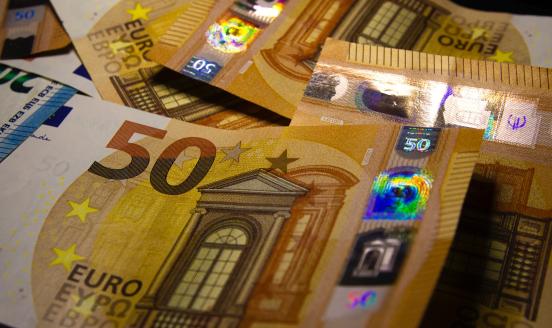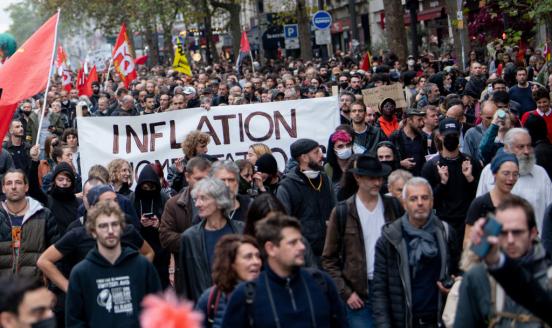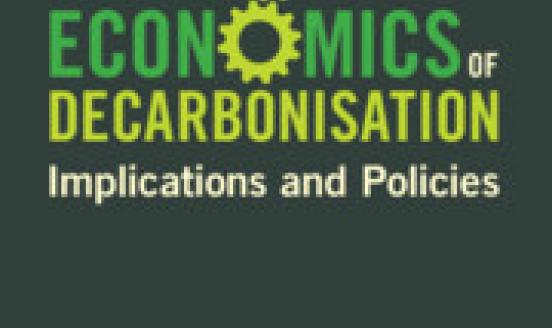The European Green Deal needs a reformed fiscal framework
The European Green Deal should include a sustainable investment strategy that will help citizens change behaviour and companies switch technologies. B

The European Commission is set to present the outline of its European Green Deal plan. As discussed in our recent paper, the plan should include a sustainable investment strategy that will help companies switch technologies and citizens change behaviour, offsetting the rising costs they will face because of higher carbon prices.
The European Commission’s most recent estimate of the ‘green investment gap’ – i.e. the additional investments necessary to achieve the EU’s 2030 climate target – is €260 billion per year. Given the more ambitious target proposed by Ursula von der Leyen (-50 to 55 percent percent emission reduction target compared to 1990, instead of -40) and the high uncertainty surrounding these estimates, the desirable number for additional investment is probably nearer or even above €300 billion per year.
Corporations and households will be responsible for the majority of these investments, but public investment will also be needed because of the public-good nature of some of the investments (e.g. to deploy a sustainable transportation system, or to renovate public buildings and social housing to make them energy efficient). Given the relatively small size of the EU budget, most of these public investments will have to be carried out at the national level. But this means that decisions, and the allocation of funds will be in the hands of national governments and not under the control of the EU. So, if the European Commission wants to foster investment to accelerate the transition, it must find a way to encourage green public investment in member states.
The main tool for the EU Commission to do this is the European fiscal framework.
In general, the European fiscal rules should be reformed to deter countries from slashing public investment when they consolidate their public finances and to ensure that they are able to take advantage of favourable interest rates to invest in public goods. One way to do that would be to include some form of golden rule in the European fiscal framework to allow the financing of investments through the issuing of debt.
And yet, if an agreement cannot be found to reform thoroughly the European fiscal rules to make them more investment-friendly in general, a reform focused on authorising deficit-financed green investment during the transition should be part of the European Green Deal. One way to put in place a form of ‘green golden rule’ would be to revise the investment clause of the European fiscal framework to make it much more flexible in order to exempt from the fiscal rules public investment that mitigates or adapts to climate change.
In fact, the current clause already allows for deviation from the structural balance medium-term objective (MTO) to finance investments “with positive, direct and verifiable long-term effects on growth and on the sustainability of public finances”. Given the potentially high risk in the long run of climate change for public finances, it would not be a stretch to apply the clause to green investments.
However, other refinements would be necessary to transform the clause from a small and temporary exemption that can only be used in bad times to a more significant and permanent exemption for green investment from the rules, also in good times.
Indeed, the current version of the investment clause is subject to the following conditions:
- The member state’s GDP growth is forecast to be negative or to remain well below its potential (resulting in negative output gap greater than 1.5 percent of potential GDP)
- The member state remains in the preventive arm and an appropriate safety margin with respect to the 3 percent of GDP deficit reference value is preserved
- The projects should be co-financed by EU funds, including through EFSI
- The deviation should not exceed 0.5 percent of GDP, and in cumulative with the structural reform clause it should not exceed 0.75 percent of GDP
- Co-financed expenditures should not substitute for national investments
- The MTO should be reached during the 4-years of the Stability or Convergence programme
- The exemption is granted for one-time only during the adjustment path towards the MTO
As a result of these restrictive conditions, only two countries, Italy and Finland, have so far used the investment clause
Some legislative changes will be needed to revise the clause to exempt public investment that mitigates or adapts to climate change from the fiscal rules. The current investment clause is established in the Code of Conduct of the Stability and Growth Pact (SGP), modified for the last time in 2017. The clause actually provides guidance on the application of Articles 5.1 and 9.1 of Regulation (EC) 1466/97, which is the legislation (amended in 2005 and 2011) authorising “temporary deviations” from the adjustment path towards the MTO in case of actions that have long-term positive budgetary effects. Given the more permanent nature of the current reason to invest (to accelerate the transition in the next 10 years), the revision of the SGP Code of Conduct will probably not be enough this time, and a revision of the Regulation will also have to be pursued to increase the flexibility.
However, to avoid any abuse of such a green investment clause by countries that might be tempted to apply the exemption to their current expenditures, two safeguards could be introduced in the new legislation:
- First, the maximum amount of green investment exempted could be related to the level of the ‘green investment gap’ in each country, which would be discussed and determined each year as part of the European Semester.
- Second, clear accounting rules would be needed to separate investment in the low-carbon transition from other expenditures. This should be facilitated by the introduction of an ambitious taxonomy for sustainable finance (which is currently finalised) and clear rules concerning the issuance of green bonds.
Hence, well-defined green investments, financed through the issuance of green bonds, could be clearly separated from the rest of the budget and exempted from the rules.
This reform, limited to the investment clause, would not put an end to the debate about the European fiscal framework and would not solve its many flaws, but it would be a good first step, as it would help encourage EU countries to invest in the decarbonisation.



